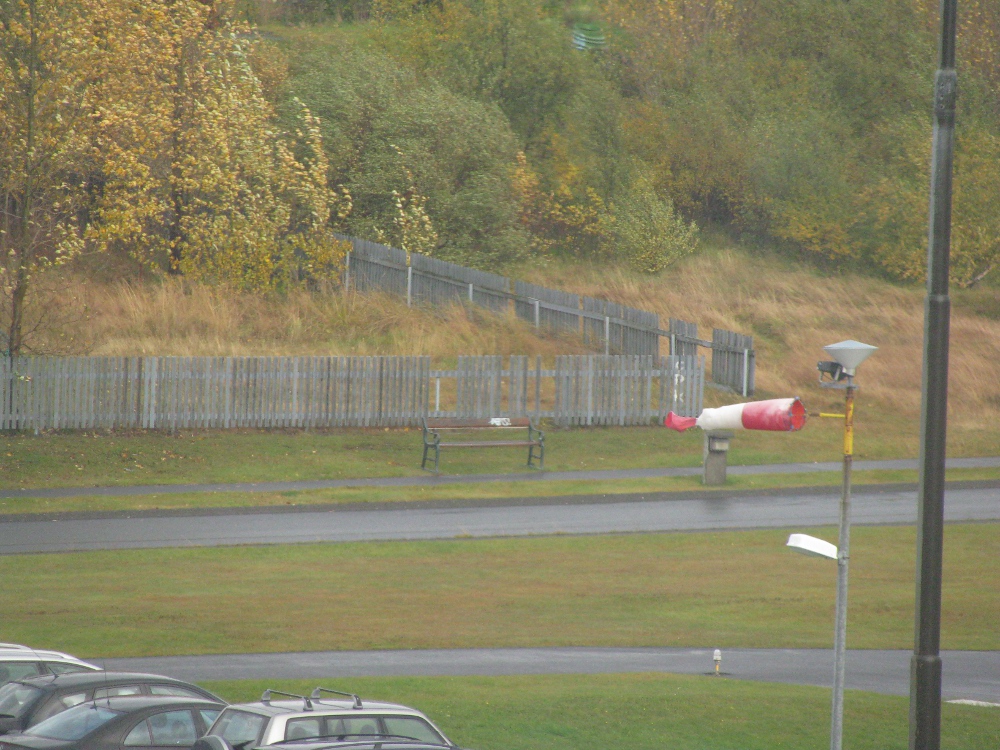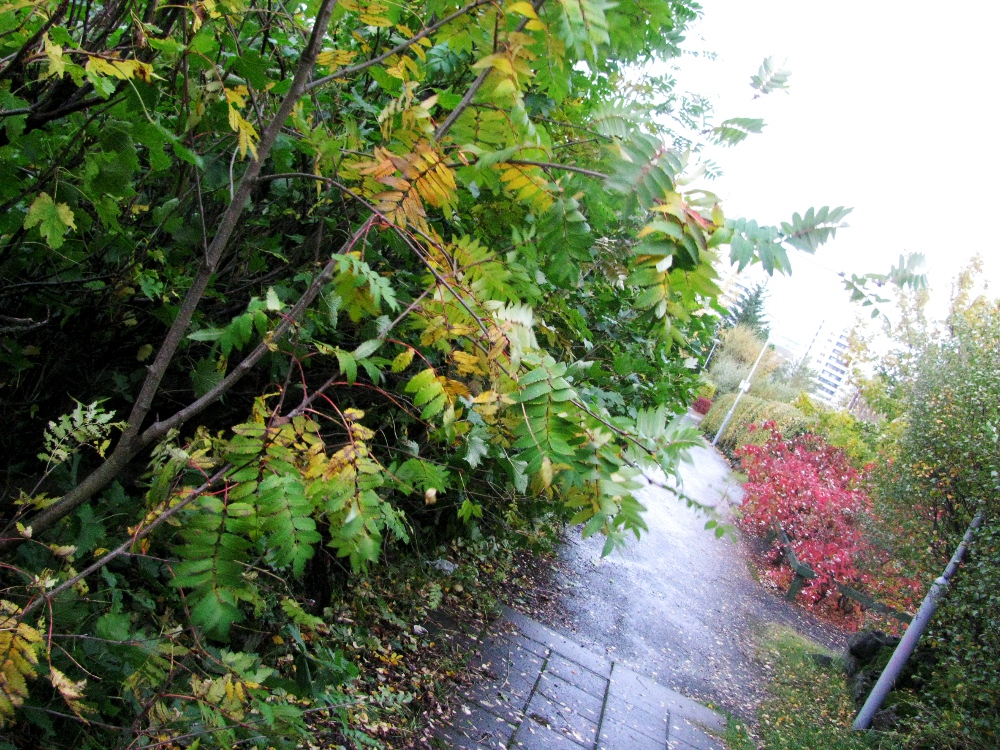The helpful helping verbs. Posted by hulda on Sep 19, 2013 in Uncategorized
 Auxiliary verbs – they’re both an Icelandic language student’s best friend and worst friend*, and therefore this grammar post will be marked with all the difficulty levels from beginner to advanced. The basics are easy to learn and will come in handy when you speak because that means you won’t have to suddenly be able to come up with all the verb declensions aside of the auxiliary verbs’ ones. Sounds like a cheap trick? Admittedly, that’s exactly what it is. I’m not above using and sharing any means available to help people get over the initial fear of using a foreign language. Besides the more you actually speak Icelandic the faster you’ll learn all those verb declensions, so it may actually end up helping you more than you’d think.
Auxiliary verbs – they’re both an Icelandic language student’s best friend and worst friend*, and therefore this grammar post will be marked with all the difficulty levels from beginner to advanced. The basics are easy to learn and will come in handy when you speak because that means you won’t have to suddenly be able to come up with all the verb declensions aside of the auxiliary verbs’ ones. Sounds like a cheap trick? Admittedly, that’s exactly what it is. I’m not above using and sharing any means available to help people get over the initial fear of using a foreign language. Besides the more you actually speak Icelandic the faster you’ll learn all those verb declensions, so it may actually end up helping you more than you’d think.
Icelandic has several types of hjálparsagnir, auxiliary/helping verbs so I will again have to cut this topic into two different posts to avoid suffocating you with too much information served in one go. The ones that we’ll be looking at in this entry are personal ones, those that directly point at the subject of the sentence. I’ll leave the ones that define time of action for the second part.
The most common auxiliary verbs of this first group are vera (= to be), vilja (= to want to), munu (= shall/may), mega (= may/to be allowed to), skulu (= shall/will), eiga (= must), kunna (= can/to know how to do sth), ætla (= to plan/to be going to do sth), verða (= to become), geta (= can/to be allowed to/to be able to) and fá (= to get/to receive). Unsure of the declension? Just check BIN (link)!
The usage of these verbs differs somewhat from English, so be especially careful about the ones that sound like their English counterparts. Here’s a short explanation on their usage, if a sentence has a confusing translation as it is I’ll include a short explanation of the real meaning after it.
Vera
Vera has many uses outside of this particular box, but because it’s possibly the most common of all Icelandic verbs it probably won’t hurt to go through its use wherever it appears. In this group vera is used in connection with another verb such as:
Það er gótt að borða hollan mat. (= It’s good to eat healthy food.)
Það er ekki hægt að fara út núna vegna veðurs. (= It’s not possible to go out now because of the weather.)
Vilja
Often translated as “to want to”, vilja has a much stronger meaning in Icelandic than in English. Imagine a child jumping on a spot, screaming that they WANT TO eat ice cream and you’re close to the level of seriousness vilja has**.
Ég vil borða ís. (= I want to eat eat ice cream./I want to eat ice cream and I’m going to do it and you cannot stop me.)
Hann vill ekki fara nema þú farir líka. (= He doesn’t want to go unless you go too./There’s no way of even getting him into the car unless you’re already sitting in it and giving him an encouraging nod.)
Sometimes vilja can, however, be used to simply declare a polite wish, here’s where we’re getting into the worst friend territory:
Viltu rétta mér sykurinn? (= Do you want to give me the sugar?/May I have the sugar please?)
Vildirðu gjöra svo vel að rétta mér sykurinn? (= Do you want to do so well as to give me the sugar?/Would you mind being so good as to handing me the sugar?)***
Munu
Another auxiliary verb where you cannot fully trust the English translation: munu indeed means shall or may, but somewhere in between. You use it to dictate a mere hint of uncertainty.
Ég mun koma. (= I may come./If I don’t show up feel free to call the police because something must have happened to me.)
Hún mun hafa sagt þetta. (= She may have said that./I’m not saying she said that but just so you know, she totally did.)
Mega
Mega shows many forms of being able or allowed to do something. They range from permission
Hér má ekki reykja! (= It’s not allowed to smoke here!)
Mætti ég kyssa þig? (= May I kiss you?)
to possibility
Af þessu má sjá að… (= From this may be seen that…)
to a pressing need.
Ég mátti vaka eftir honum. (= I need to stay up waiting for him.)
Skulu
Skulu is shall in the sense of giving a stern promise of doing something. One of our grammar professor’s personal annoyances is, apparently, when students say “ég skal gera það” (= I’ll do it), because it’s actually quite a large scale declaration, despite of how its translation sounds like in English. Naturally she understands that our grip on the language falters here and there, but especially because of that she does her best to weed out the obvious mistakes before they blossom into bad habits.
Hún skal hjálpa okkur. (= She will help us./She will most definitely be there for us.)
Þú skalt fara núna. (= You will go now./You can choose whether you leave on your own feet or get thrown out but by my word you’ll not stay.)
Ég skal gera það. (= I will do it./Someone has to die for everyone else to survive, so I shall be the one to go.)
Eiga
Like vera, eiga has many uses and many translations as well. Here it means “must” or “have to”.
Ég á að skrifa lokaritgerð. (= I must/have to write a final essay.)
Þú eigir að lesa Njálu. (= You should read Njal’s Saga.)
Á ég að hjálpa þér? (= Do I have to help you?/Would you like me to help you?)
Kunna
Kunna means can in the meaning of knowing how to do something, such as “I can read”, “I can drive a car” etc. Although it does have a few exceptional extra meanings it’s usually best to only use it to mean “to know how to do something”. Don’t let the English “can” lead you astray here!
Hann kann að lesa. (= He can read.)
Ætla
To go back a little bit, what should you say to your teacher instead of “ég skal gera það“? Here’s the answer:
Ég ætla að gera það. (= I’m going to do that.)
Aside of its most obvious meaning as “to plan to”, ætla can also be used to notify a possibility:
Það ætlar að fara að rigna. (= It’s going to begin to rain.)
Ætli það sé best að fara inn? (= Wouldn’t it be best to go inside?)
Verða
Verða is rarely used as an auxiliary verb – in fact the only occasion that I can easily think of is when it’s used to mean “to have to” in a stronger sense than eiga but not quite on level yet with skulu.
Þu verður að skila ritgerðið í dag. (= You must send in the essay today.)
Geta
Geta is the most typical of these verbs to be used in the form of “can”/”to be able to”/”to know how to”, it’s an easy first option for you to use because it’s almost always relevant.
Ég get gert það en vil það ekki. (= I can do that but I don’t want to.)
Það getur verið að við komum ekki. (= It could be that we won’t come.)
Another popular use for geta is in polite requests:
Gætir þú hjálpað mér með dönsku? (= Could you help me with Danish?/Would you be as kind as to help me with Danish?)
Fá
A bit confusingly geta does not translate as “get”, fá does.
Hún fékk hann drepinn. (= She got him killed.)
*Worst enemy is not a strong enough term for the occasion, so instead think of the kind of a friend who gives you all those ideas that at first sound so good but end up landing you in trouble, that’s exactly what auxiliary verbs in Icelandic do.
**Serious as serious from the child’s point of view.
***Both forms viltu and vildirðu mean the same, but viltu is less formal and therefore more polite. Yes, you read that right. Formal is rarely polite in Iceland.

Build vocabulary, practice pronunciation, and more with Transparent Language Online. Available anytime, anywhere, on any device.
About the Author: hulda
Hi, I'm Hulda, originally Finnish but now living in the suburbs of Reykjavík. I'm here to help you in any way I can if you're considering learning Icelandic. Nice to meet you!








Comments:
Flavio:
Sæll! Ég heiti Flavio og ég er frá Ítalíu. Ég ætla að læra íslensku, svo takk fyrir þetta!
I’m still a beginner, but your post helped me figure some things out!
So some auxiliary verbs also need að and some others don’t, right?
hulda:
@Flavio Sæll vertu Flavio, yes, some of them need to be tied to the other verb with an að – it cannot be left out. Gangi þér vel! 🙂
Avs:
Hilda, many thanks for the piece on auxiliary verbs. Very helpful.
Ava